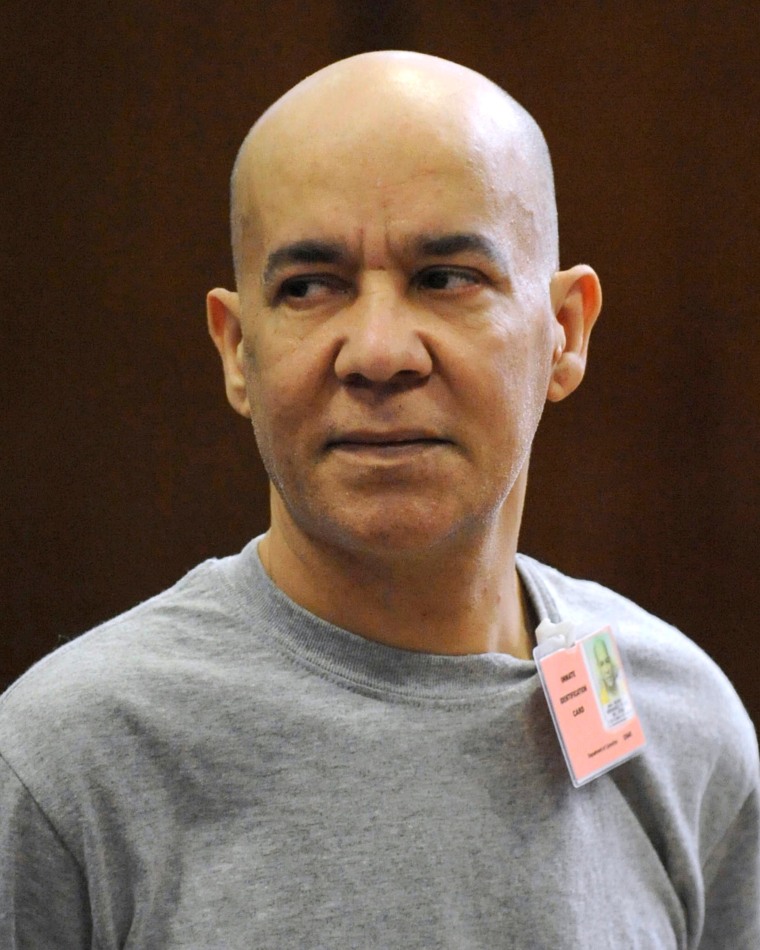A New York federal appeals court Monday ruled that the former bodega stock clerk convicted in the 1979 kidnapping and murder of 6-year-old Etan Patz should receive a new trial or be released from custody.

Pedro Hernandez, 64, was convicted in 2017 of kidnapping and murdering Patz after he confessed to luring the child into a basement as he walked to his bus stop in SoHo. He was sentenced to 25 years to life in connection with the case that rocked New York City. The child was among the first to be placed on a milk carton to seek the public’s help in finding him.
In a 51-page ruling on Monday by a three-judge panel, the 2nd U.S. Circuit Court of Appeals overturned the conviction, ordering that Hernandez should be retried or released because of a flawed instruction by the New York state judge presiding over his case in response to a jury note about his alleged confessions.
In their appeal, Hernandez’s lawyers argued that the instructions were improper and tainted the verdict. His lawyers have previously argued that Hernandez is mentally ill and confessed after hours of police interrogation.
“We conclude that the state trial court contradicted clearly established federal law and that this error was not harmless,” a three-judge appeals panel held in its ruling Monday.
A spokesperson with the Manhattan district attorney’s office told NBC News that “we are reviewing the decision.” A lawyer for Hernandez did not immediately respond to a request for comment.
Etan vanished on May 25, 1979, while walking to a bus stop two blocks from his family’s Manhattan home. His disappearance launched a massive search in the SoHo neighborhood and spurred the national movement to put photographs of missing kids on milk cartons.
The child was declared dead in 2001, but police continued their investigation into him and his likely killer. In May 2012, authorities tracked down Hernandez in Jersey on a tip from his brother-in-law, according to the order.
Hernandez, who was 18 when Etan went missing, later confessed to luring the boy into a bodega with the promise of a soda and grabbing him by the neck and fatally choking him. The order states that Hernandez then said he put the boy’s body in a “garbage bag” before stuffing him into a box and leaving it in a trash area around the corner from the bodega.
He did not provide a motive at the time, but denied it was sexual, the order states.
“Hernandez, who has a documented history of mental illnesses and a low intelligence quotient (‘IQ’), initially confessed after approximately seven hours of unwarned questioning by three police officers,” the Monday ruling states. “Immediately after Hernandez confessed, the police administered Miranda warnings, began a video recording, and had Hernandez repeat his confession on tape. He did so again, several hours later, to an Assistant District Attorney (‘ADA’). At trial, the prosecution discussed and played these videos repeatedly.”
The boy’s body was never found, and prosecutors were unable to find anybody who saw Hernandez with him. Hernandez’s first trial in 2015, where he was charged with two counts of murder in the second degree and one count of kidnapping in the first degree, ended in a hung jury after 18 days of deliberations.
The second trial began in September 2016, where prosecutors centered their case on Hernandez’s confession. The order on Monday states that during closing arguments, the prosecution played clips from Hernandez’s taped confessions at least seven times for the jury.
“When deliberating during his second trial, the jury sent the judge three different notes about Hernandez’s confessions,” the appellant’s order states. “The third note asked the trial court to ‘explain’ whether, if the jury found that Hernandez’s un-Mirandized confession ‘was not voluntary,’ it ‘must disregard’ the later confessions, including the videotaped confessions at the local Camden County Prosecutor’s Office (‘CCPO’) and the Manhattan District Attorney’s (‘DA’s’) Office.”
The order states that the court instructed the jury, without explaining, that the “answer is no.” When they finally reached a verdict, Hernandez was convicted of felony murder and kidnapping in the first degree after nine days of deliberations. The jury, however, acquitted him of intentional murder, the order states.